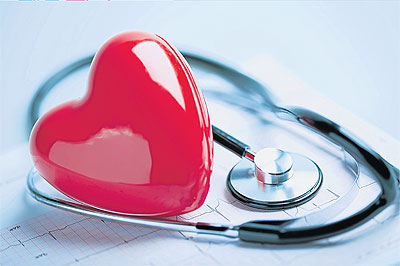It is a widely accepted theory that high cholesterol causes heart disease, so many food brands are trying to advertise themselves as "healthy" by adding "cholesterol free" labels on their line of products. But if you look carefully you will see that they are usually products that are not made from animal fat to begin with (all dietary cholesterol comes from animal fat, not vegetable fat), like potato crisps, so the "cholesterol free" label is completely a non-issue; there's no way potato crisps can contain cholesterol unless they are deep-fried in animal fat. Therefore, you should look at the amount of calories in each serving instead.

Saturated fatty acids are known as "bad" fats because they can increase LDL levels. Studies have found that by incorporating 1% of saturated fatty acids into your daily total food intake, LDL levels will increase by 2%. Saturated fatty acids are commonly found in meat, milk and dairy products, as well as some types of vegetable oil, particularly if the food is cooked in it for a long time.
Trans fatty acids (trans fats) are unsaturated fats, which are formed when hydrogen is added to vegetable oil, a process called hydrogenation. Trans fats can also cause LDL levels to increase. They are commonly found in solid margarine, processed snacks and fried menus at fast food restaurants.
Monounsaturated fatty acids are "good" fats _ found in all kinds of olive oil, canola oil and nuts _ that help lower LDL levels. Polyunsaturated fatty acids are good for the heart as they, too, can lower LDL levels. These fatty acids are commonly found in vegetable oils, including maize oil and olive oil, or in oily fish like salmon or tuna. However, these types of oils are not well-suited for high heat cooking; rice bran oil is the best oil for deep-frying because it can be heated to high temperatures.
It's okay to eat some monounsaturated and polyunsaturated fatty acids, but you should avoid foods that contain trans fats and saturated fats. Although, if you include too much fat into your diet _ whether good or bad _ you run the risk of unhealthy weight gain.

Another important nutritional component is fibre. It is recommended that adults consume about 10-25g of soluble fibre each day; fibre works by binding to fat and cholesterol in the intestine, thus preventing fat and cholesterol from being absorbed into the blood. Soluble fibre is commonly found in fruits and vegetables, such as broccoli, carrots, nuts, oats and grains.
Then there are plant sterols and stanols, which are collectively known as phytosterols. They are natural components found in plants that reduce the ability of your intestines to absorb cholesterol. Normally, we get plant sterols and stanols from fruits and vegetables. It's said that the Chinese emperor always ate fruit before having high-fat meals. If you consume insufficient amounts of plant sterols and stanols, you can always take supplementaries. The recommended amounts of such supplements is two grammes per day, in order to reduce the risk of heart disease, including coronary artery disease. These supplements come in various forms, such as spreads and margarine, as well as pills (I'm not sure if they are available in Thailand).
How are all these foods a form of medicine you ask? When speaking of medicine, it should have preventive or curing properties _ well, the foods I've mentioned all have that. So now you can become healthier just by adjusting your daily food intake according to the table below.
As you can see, just by controlling your intake of saturated fats and cholesterol, controlling your weight, as well as getting enough fibre and plant stanols, you can decrease your LDL levels by up to 20-30%. While taking medication that lowers cholesterol, such as statin pills, can decrease LDL levels by only 10-20%.
One time, a 50-year-old female patient came to see me because she felt tired easily. After a check-up, I could not find the reason for her problem, except for her high blood pressure and weight. She was only 150cm tall but weighed 95kg, and her blood pressure was 150/96 mmHg. After I was certain her arteries weren't narrowed and she did not have heart disease, I told her to exercise regularly and try to lose some weight. She followed my tips, and soon she was able to exercise for 30-40 minutes without feeling exhausted. She still felt a little tired, though, if she did things too quickly, like taking the stairs. Sometimes, she said she would get so tired and her knees would hurt so much that she had to walk up the stairs and grab the rail to help support her. Then two years later, her weight shot up to 108kg.
She said she was afraid of developing heart disease, so she avoided eating fatty foods and meat.
However, due to her big appetite, she replaced her meals with two to three kilogrammes of oranges each day. Maybe I should have told her about taking the middle path!
Dr Nithi Mahanonda is a consultant cardiologist and interventionist at Perfect Heart Institute, Piyavate Hospital.
